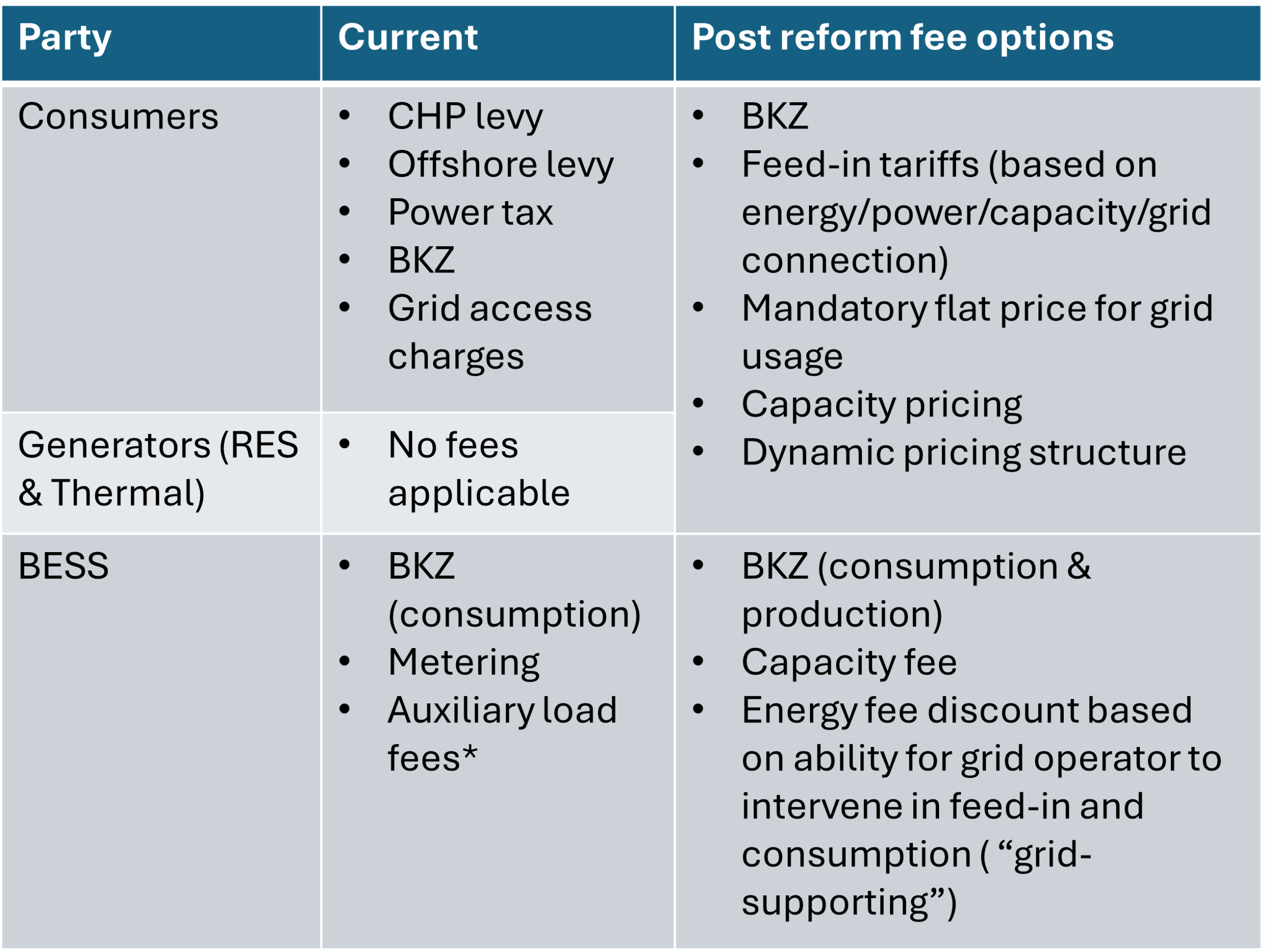On 12 May 2025 Germany’s energy regulator, BNetzA, opened a public consultation and released a discussion paper on reforming network tariffs. The proposed reform aims tackle the challenges of rising grid costs and a shrinking pool of fee-paying customers, while improving price signals for grid development and strengthening incentives for demand-side flexibility. It also notes that the growth of “prosumers”, including large battery energy-storage systems (BESS), is steadily eroding the base from which grid costs are recovered.
For battery owners, the key takeaway is that the 20-year blanket exemption from grid fees will expire for assets that go live after 31 December 2028. Assets which go live beyond that date will be charged network tariffs by default; energy-based fees may still be discounted, potentially by up to 100%, but only when the BESS operator provides the grid operator the right to intervene in the feed-in and consumption of the asset (i.e. “grid-supporting”). Capacity-based fees however are unlikely to qualify for future discounts. This shift will make the optimiser’s ability to run the asset in a grid-friendly manner far more valuable.
At this stage, the degree of intervention provided by “grid-supporting” agreements is unclear. Possible pathways include contractual limits on when a battery may discharge or requirements to provide congestion relief and balancing service. Such arrangements can be rigid and commercially limiting; investors will instead push for clear, performance-based criteria rather than restrictive operating windows.
Grid fee exemptions have been a key element in the investment case for BESS in Germany. Removing this without providing another alternative could make projects economically unviable, delay final investment decisions and slow down the roll-out of flexibility that Germany’s power system urgently needs as solar capacity continues to grow. As the consultation proceeds, clarity on the definition of grid support, and on whether grid-scale batteries will be treated differently from EV or thermal storage, will be critical to keeping Germany’s storage build-out on track.
We provide a comprehensive quarterly investment support service for German BESS investors. Please reach out to our Power Director Steven Coppack (steven.coppack@timera-energy.com) or Senior Analyst Arshpreet Dhatt (arshpreet.dhatt@timera-energy.com) if you would like a sample copy.
